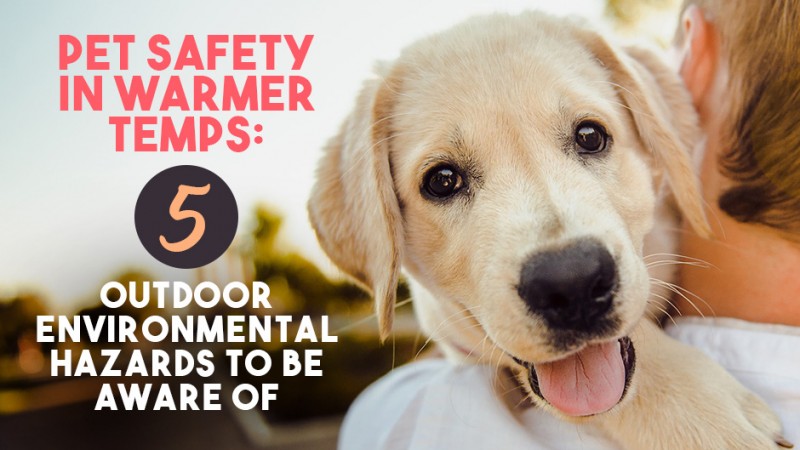May Newsletter
CLIENT APPRECIATION PARTY
You and your family are invited to our annual Client Appreciation Party at the clinic on Friday July 27 from 3-7 pm. We had a great turnout last year on Friday evening, so we decided to try that again.
We will have free food and beverages and fun and door prizes and lots of things for kids to do. We are planning on having food in the garage and activities in a tent on the south lawn, so everything will be easy to find.
Pet Safety In Warmer Temps

As a pet owner, you look forward to the warmer spring weather because it means you can finally spend more time outdoors with your furry friend. Unfortunately, it also means more exposure to environmental hazards for your dog or cat. This requires awareness of these dangers and active steps on your part to help your pet avoid them.
April Newsletter
PLEASE WELCOME NEW STAFF
Next time you come into the clinic, you may see a new face at the front desk and another new face working with the animals. We are happy to introduce to you two new team members at Lancaster Vet Clinic.
Debbie Smith from Cassville is our new full time front desk person. She has a friendly face and a smile that comes to you right through the phone. Debbie loves cats.
Megan Stewart is our new full time certified veterinary technician. A certified vet tech is an animal nurse/lab tech who has completed a two year college program and passed a licensing exam. Megan lives in Boscobel with her bearded dragon (ask for a picture!).
Please welcome our new members and be patient while they get more comfortable with the computer, phone system, and where things are in the building.